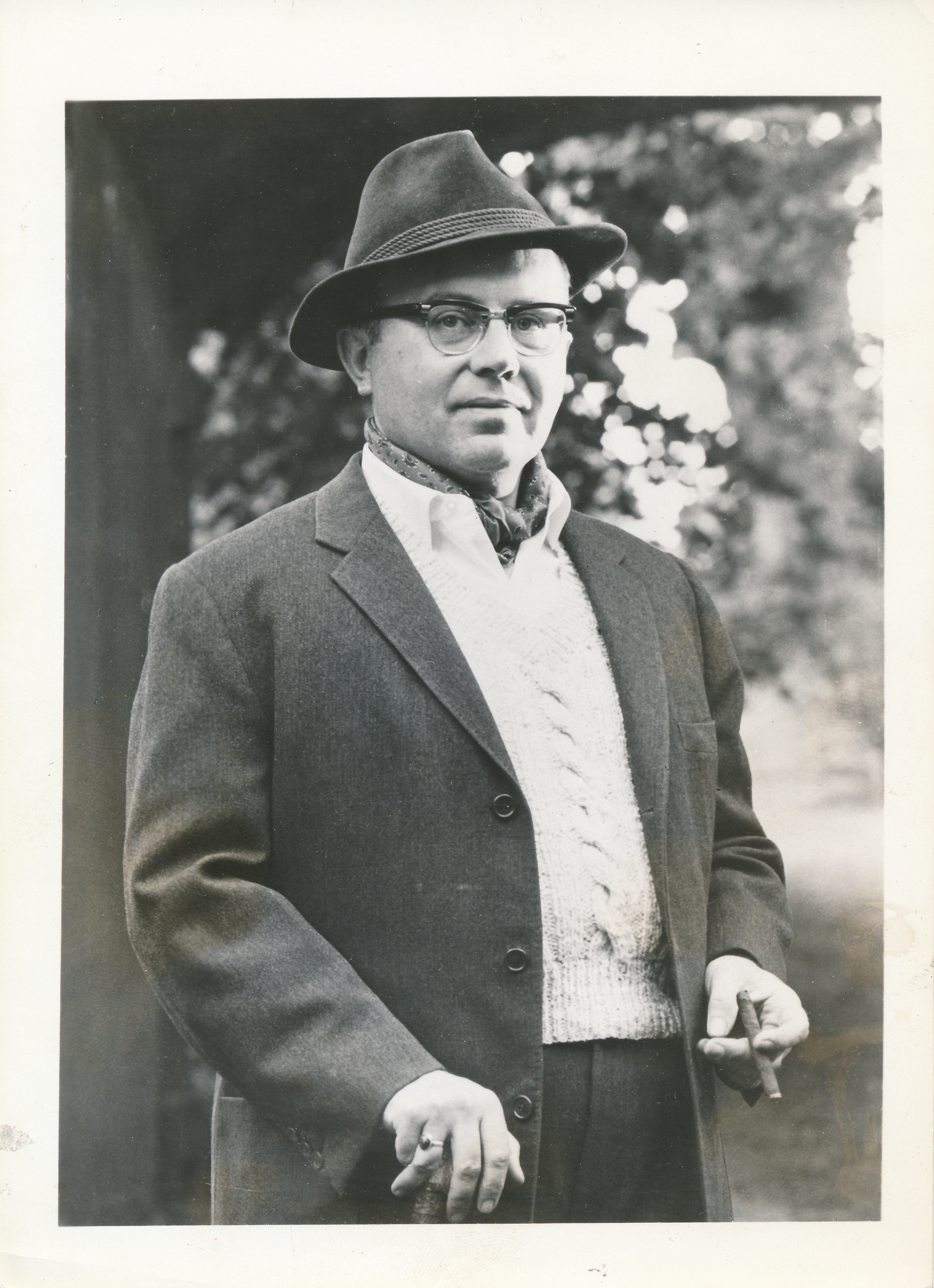Remembering Russell Kirk on the 30th Anniversary of his Passing

This present life here below, Kirk had perceived often in his mind’s eye, is an ephemeral existence, precarious, as in an arena rather than upon a stage: some men are meant to be gladiators or knights-errant, not mere strolling players. Swords drawn, they stand on a darkling plain against all comers and all odds; how well they bear themselves in the mortal struggle will determine in what condition they shall put on incorruption. His sins of omission and commission notwithstanding, Kirk had blown his horn and drawn his sword of imagination, in the arena of the blighted twentieth century, that he might assail the follies of the time.
– Russell Kirk, from the epilogue: “Is Life Worth Living?”
As we mark the 30th anniversary of Russell Kirk’s passing on April 29, 1994, we’re sharing this epilogue “Is Life Worth Living?” from Kirk’s autobiography, written in the third person, The Sword of Imagination: Memoirs of a Half-Century of Literary Conflict.
Several friends of the Kirk Center and admirers of Russell Kirk have drawn their own swords of imagination to remember and enliven the permanent things on this occasion.
Daniel McCarthy writes about “Russell Kirk’s Gothic Ghost” in Modern Age:
“Kirk died three decades ago, and what goes by the name of conservatism today is very different from the tradition Kirk labored to recover. But that tradition, whether by its proper name or not, endures in the heart and in those depths of the mind that are more than merely rational. Continuity with Kirk is a thing to be felt and not simply known. There are earthly monuments to Russell Kirk in the institutions he founded, including Modern Age. Yet there’s also a spiritual and moral monument in the change he brought about in America and conservatism, giving both a greater sense of communion with what has been lost in our gothic past but isn’t really lost at all.”
In Providence Magazine, Michael Lucchese writes “Remembering Russell Kirk 30 Years Later”:
“The main thrust of Kirk’s scholarship and imaginative writing was to remind Americans who we really are. In Reflections on the Revolution in France, Burke wrote that liberty is ‘an entailed inheritance derived to us from our forefathers, and to be transmitted to our posterity.’ Conservatism, for Kirk, is this fusion of history and futurity in a sense of responsibility. Throughout his life and career, he left us signposts pointing back to that notion.”
For the New Guard Press, Dan Brand writes “Remembering the Conservative Icon Russell Kirk.” Brand formerly served as the Kirk Center’s archival intern:
“Kirk’s impact on the modern day, three decades past his death, is still apparent to intellectual conservatives, both budding and old. His mountain of works gives us some guiding principles, vices to avoid, virtues to pursue, and even the name that we call ourselves. Kirk shows us both a logical and imaginative sense of conservatism through his fundamental truths and powerful stories. Both of these live on in his works, keeping him as an essential staple in any conservative studies. On this day of remembrance, we honor Kirk in promoting him among those who have not heard of him, providing them the opportunity to learn both from his chivalrous example and his enduring words.”
The Kirk Center thanks all those who’ve shared their reminiscences and the ways in which Russell Kirk’s life and writing have influenced their own.
More From Our Highlights & News
Interview with Jeff Nelson
Josh Lewis, host of Saving Elephants podcast, interviewed Kirk Center CEO Jeff Nelson on how he came to know and work for Russell Kirk and Kirk’s major contributions to articulating the American conservative tradition. In a wide-ranging conversation, they discuss the...
Talks Engaging Kirk’s Thought Elsewhere
Bishop Robert Barron, founder of Word on Fire Ministries, delivered the 2023 Russell Kirk Lecture at the Heritage Foundation on "The Breakdown of the Tocquevillean Equilibrium." Saving Elephants podcast interviewed John Wood Jr. on finding commonality between Kirk and...
Otto von Habsburg Foundation connects with the Kirk Center
In a 1959 letter to Russell Kirk, Otto von Habsburg, Archduke of Austria-Hungary, wrote: “I am very much interested to learn from your letter that you devote so much attention to the development of [the journal] ‘Modern Age.’ I think that you do here a tremendously...
The Great Books podcast features Luke Sheahan
On The Great Books podcast, host John J. Miller was joined by Luke Sheahan, editor of The University Bookman, to discuss Robert Nisbet’s landmark book, The Quest for Community. Sheahan gives a wonderfully lucid presentation on Nisbet’s argument that the human drive...